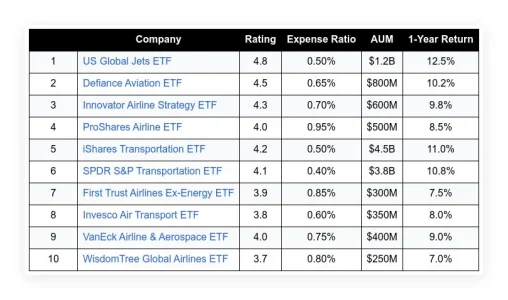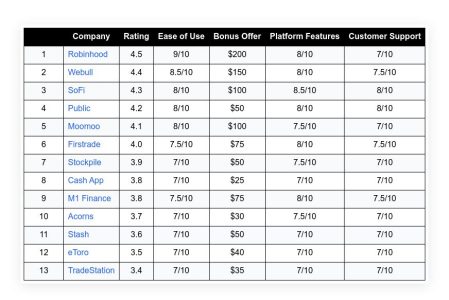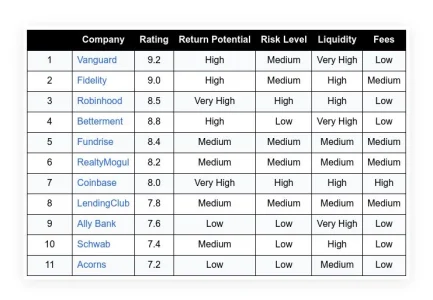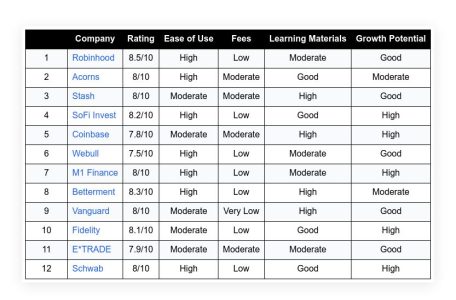Although he did not invent the phrase, one of my favorite expressions from my grandfather was “champagne taste on a beer budget.” If you are unfamiliar with this saying, it simply refers to someone who lives above their means and likes things they cannot afford.
Even though I totally get the wisdom my grandfather was trying to convey, in today’s world, “fabulous” and “budget” can coexist side-by-side.
I know. You might find that absurd. After all, we’re constantly surrounded by images of luxury vacations, designer outfits, and lavish lifestyles. Because of this, it is easy to believe that living lavishly requires a large budget.
On top of that, these expenses can be charged more efficiently than ever before. According to statistics, 82 percent of U.S. adults will hold a credit card in 2022, making it the most popular consumer lending product by number of users.
But what if I told you that you can live fabulously on even the tightest budgets?
It’s true. Living fabulously doesn’t mean spending more money; it means spending smarter and savoring the experiences that matter most. Regardless of your bank account, it’s about cultivating inner joy which radiates outward.
In other words, it’s not about keeping up with the Joneses and spending money on things you don’t value.
On that note, let’s explore how we can enjoy fabulous living without spending a fortune.
Table of Contents
ToggleChange Your Mind About Budgets
As we all know, budgeting isn’t the most exciting activity. However, if you want to live a fabulous life, it is necessary. In addition, you can make it more engaging and fun by adding some creative touches.
Change your mindset.
- Escape the “B” word. You might consider calling it a “financial game plan,” a “money adventure,” or something more meaningful.
- Focus on your goals. Track expenses according to specific goals, such as saving for a dream vacation or eliminating debt. It can be motivating to see progress toward something fun.
- Don’t let negativity get you down. Consider the freedom and peace of mind you’ll experience when you’re financially secure instead of thinking about restrictions.
Make it visual and interactive.
- Ditch the spreadsheet. Make use of budgeting apps such as Mint, YNAB, or EveryDollar with colorful interfaces and gamification elements. Some budgeting apps even let you challenge your friends on a budget.
- Embrace the analog. Use colorful charts, stickers, or jars for each spending category to create a budget tracker.
- Track in real-time. A budget whiteboard or a progress chart on your wall will help you keep track of your progress. It can be satisfying to see the numbers change.
Turn it into a game.
- Challenge yourself. You can reward yourself if you achieve mini-goals, such as “spend less than $50 this week on groceries”.
- Involve others. Invite your partner, family, or friends to participate. For example, you can get everyone involved in budgeting, setting shared goals, and celebrating wins.
- Reward yourself. Don’t forget to celebrate your budgeting successes. After you’ve saved a certain amount or kept your budget for a month, treat yourself to something small.
A Place to Call Your Own
At $1,784 per month, housing and household expenses make up most of our living expenses. The good news is that finding affordable housing that meets your needs is possible with some creativity and resourcefulness.
- Consider alternative housing options. On a tight budget, renting or buying a house might not be feasible. As such, consider co-living, house hacking (living in one unit and renting the rest), or tiny houses.
- Look for deals. Check online listings, talk to friends and family, or contact local housing organizations to find affordable housing. If you want a lower rent, you can also negotiate with landlords.
- Be flexible. If you want to save money, you have to be willing to live in a smaller apartment, in a less desirable location, or with roommates.
- Think outside the box. Unconventional housing has the potential to be surprisingly affordable. Think about living in a van or on a boat, for example. Alternatively, you could become an expat and relocate to a country with affordable and exotic lifestyles, such as Colombia or Malaysia.
- Go on a home improvement journey. Save money on home repairs by learning some basic DIY tips and tricks.
- Get creative with your income. In case you are having trouble making ends meet, consider boosting your income. Consider starting a side hustle, selling some of your things, or asking for a raise at work.
Home decor delights.
Despite finding affordable housing, you still need to make it comfortable. Thankfully, you can use these tips to decorate and furnish your home without spending a small fortune.
- Upcycle and repurpose. Refurbish old furniture and household items to give them a new lease on life. Paint, refinish, or add fun accents to make unique pieces that reflect your style.
- Embrace the power of plants. Greenery instantly infuses any space with life and vibrancy. Use cuttings from friends, scour outdoor spaces for interesting foliage, or purchase plants at a nearby nursery.
- Shop flea markets and garage sales. There is no telling what gems you might find. Whether they’re vintage posters or quirky knickknacks, these hidden treasures add character to any space.
Eat Like a King or Queen
Based on the Census Bureau’s Household Pulse Survey, the average American household spends over $1,000 a month on groceries. However, the number varies depending on where you live and how many people you feed.
Whatever the case may be, groceries take up a significant portion of our budget. Still, even on a budget, eating like royalty is possible if you find creative ways to stretch your food dollars. To get you started, here are a few tips:
- Plan your meals and snacks. Avoid impulse purchases to save money and food. Make a list of what you need before shopping.
- Shop at discount grocery stores and farmers’ markets. Farmers markets offer fresh, seasonal produce competitively, while discount grocery stores offer name-brand items for less.
- Buy in bulk. Buying in bulk can save money on staples such as rice, beans, and pasta. Just make sure you use it all before it expires.
- Embrace frozen. In addition to being just as nutritious as fresh fruits and vegetables, frozen produce is usually more affordable. As a bonus, it prevents food waste.
- Cook at home more often. Whenever possible, cook at home instead of eating out.
- Get creative with leftovers. A delicious meal can be created from leftovers. As an example, leftover chicken can be made into sandwiches, stir-fries, and quesadillas.
- Grow your own food. Even if you have a small garden, you can flavor your meals with fresh herbs.
- Don’t be afraid to try new things. There are many delicious and budget-friendly recipes from around the world.
Add the royal touches.
Even if you cook a meal from scratch, you can make it feel special.
- Set the table with nice dishes and silverware. Your meal will be more memorable. Bonus points if you purchase these items second-hand.
- Light some candles. Adding candles to any meal creates a romantic atmosphere.
- Put on some music. The right music can set the mood and elevate your dining experience.
Fashion on a Dime
As reported by GOBankingRates, Americans spend approximately $1,800 on clothing per year. However, a variety of factors may influence this figure, such as age, gender, location, and personal preferences. Regardless, you can still look stylish without breaking the bank.
Shopping savvy.
- Thrifting. Discover unique pieces at your local thrift store. If you dig around, you can find designer gems, vintage treasures, and everyday staples for a fraction of the price.
- Consignment shops. Gently used items from various brands and styles can be found at consignment stores. You can usually find high-quality pieces in excellent condition for much less than their original price.
- Flash sales and discount websites. Look for online flash sales and discount websites offering deep discounts on high-street and designer brands.
DIY and upcycling.
- Get crafty. Learn to sew, knit, or crochet to create unique pieces. You can also dye, embroider, and add patches to existing clothing.
- Repurpose and restyle. Turn old clothes into something new to give them a new lease on life. For example, turn an old shirt into a scarf or a pair of jeans into a skirt. There are all kinds of YouTubes that show easy ways to accomplish the how-tos of remodeling clothing and other items.
- Accessorize. The right accessories can make an outfit stand out. Shop at thrift stores or vintage shops for jewelry, scarves, hats, and bags that stand out.
Other tips.
- Invest in basics. The key to creating endless outfits is building a high-quality basic wardrobe. Consider classic pieces in neutral colors that will never go out of style.
- Take care of your clothes. Proper care is important so your clothes will last a long time and look their best. Ensure that your clothes are clean, dry, and ironed correctly.
- Swap clothes with friends. Organize a clothing exchange party with your friends and exchange old items for new ones. As a bonus, it’s fun to spend time with family and friends without spending money.
It’s All About Experiences, Not Just Things
Creating unforgettable experiences is the key to living fabulously. Here are some ideas for doing so on a budget.
- Enjoy the great outdoors. Pedal along scenic backroads, hike scenic trails or kayak serene waterways.
- Make your town a tourist attraction. Visit local museums, historic sites, and art galleries. You might be surprised at how many free or cheap events are available near you on specific days.
- A picnic in the park. Spend an afternoon relaxing and playing frisbee in a local park with delicious homemade treats. There’s nothing better than fresh air, sunshine, and good company for a picnic.
- Organize game nights and movie marathons. Bring your friends together for a potluck game night or a movie marathon. With laughter, friendly competition, and shared experiences, lasting memories can be created.
- Travel off-season. It is typical for flight and hotel rates to be lower during the off-season. There are fewer crowds, lines, and hassles during the off-season, as well. In addition, you’ll be able to experience more authentic culture and receive better service.
- Volunteer your time. Giving back to your community can enrich your life. Get involved with a cause that matters to you, and volunteer your time. Meeting new people, helping others, and making a difference are just some benefits.
Living Frugally, Living Richly
Last but not least, here are some tips for living frugally while living richly.
- Embrace minimalism. Rather than focusing on material possessions, declutter your life. Simple things like spending time with family or friends, enjoying nature, or pursuing a passion can bring great joy.
- Practice gratitude. Don’t focus on what you lack, but on what you have. Be grateful for the good things in your life, no matter how small. With this shift in perspective, even the most ordinary moments can become extraordinary.
- Invest in yourself. Investing in yourself is the best investment you can make. Participate in free online courses, attend workshops, and volunteer to gain valuable experience. With these investments, you can enrich your life in ways money cannot buy.
Remember that fabulous is not about the things you own but about how you live and the joy you cultivate. It’s about savoring the little moments, prioritizing experiences over possessions, and looking for beauty in the ordinary.
FAQs
What does “living fabulously” mean on a budget?
It’s all about prioritizing quality over quantity and prioritizing experiences over things. You can also enjoy life without breaking the bank by being creative. No matter your income, it’s about feeling fulfilled and satisfied.
How do I create a budget that works for me?
The first thing you should do is to start simple. From there, you should:
- Track your spending. Budgeting apps, spreadsheets, or even a simple notebook can help you keep track of your income and expenses. By doing this, you can see where your money is going.
- Categorize your expenses. Expenses can be divided into fixed (rent, bills), variable (groceries, transportation), and discretionary (entertainment, dining out). As a result, you can identify areas where you can make savings.
- Set realistic goals. You shouldn’t try to go from living on rice and beans to spending freely overnight. Slowly tighten your belt based on small, attainable goals as you get comfortable.
- Don’t deprive yourself. Remember to allocate some of your money to fun and activities you enjoy. If you do, you will end up frustrated and unsuccessful.
Last but not least, flexibility is key.
How can I have fun and socialize without spending a lot?
Get creative.
A few ideas include hosting potlucks or games nights with friends, showing movies at home, exploring free museum days, or going on hikes or picnics outside. Check out local events and festivals that are free to attend as well.
I still want to treat myself sometimes; how can I do it smartly?
Allow yourself to splurge occasionally!
Check out happy hour menus or early bird specials for deals and discounts. You can also take a cooking class or visit a new museum instead of buying material things.
Living on a budget feels restrictive; how can I maintain a positive attitude?
When you manage your finances, you’ll feel more empowered and free. Celebrate your small wins whenever you meet your savings goals or stick to your budget.
Remember, it’s not about spending a lot but maximizing your resources to live fabulously.
Image Credit: Ron Lach; Pexels
















